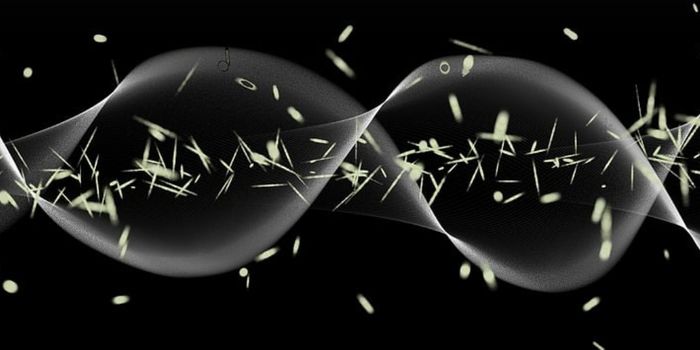A study published in Paediatric Critical Care Medicine and funded by the Meningitis Research Foundation indicates that children who had been in the pediatric intensive care unit (PICU) had a greater chance of developing Post Traumatic Stress Disorder (PTSD), general psychological problems and fatigue or sleep disorders than healthy controls.

Created to look at the cognitive and behavioral after-effects of children recovering from meningitis, septicemia and other critical illnesses, the study investigated the impact of a hospital stay on children. According to Dr Lorraine Als, a research psychologist at Imperial College London, who received funding for the study, "Looking at the data we collected, there are several different trends: children who have been in PICU with sepsis seem to suffer higher levels of PTSD, whereas other psychological issues around emotion and behavior were linked to longer lengths of PICU stay rather than a specific type of illness."
Fatigue and sleep disorders as a result of a PICU stay did not match the type of illness or length of stay. Pediatricians say that children are traumatized by the stay in the hospital and should be closely monitored afterwards. According to MRF Chief Executive Chris Head, "School-aged children admitted to PICU show an increased risk for reduced mental and physical wellbeing. This points to the importance of attending to and monitoring emotional symptoms during follow-up surveillance of children with a history of critical illness. It also highlights the importance of vaccines in preventing some of these diseases, including meningitis, in the first place."
To find out more about the after effects of meningitis and septicaemia in children please go to: www.meningitis.org/recovery.
To find out more about MRF funded research projects please go to: www.meningitis.org/current-projects
For the full article, see www.medicalnewstoday.com/releases/293307.php.
Jeffrey I. Gold, PhD, director of the Pediatric Pain Management Clinic at Children's Hospital Los Angeles (CHLA), provided some insight into dealing with PTSD after children have been in the PICU. Here is the text of his responses in Medical News, February 23, 2015:
Dr. Gold, let's start with the basics. What exactly are the symptoms of medical PTSD?
PTSD in general includes a cluster of symptoms, such as re-experiencing the traumatic event, avoiding reminders of the event, hyper-arousal, hyper-reactivity, being easily startled and negative changes in thinking and mood. Patients with medical PTSD share these same symptoms, but they are specifically the result of a traumatic medical situation.
Also, in medical PTSD, these symptoms aren't restricted to the patient themselves. Parents and family members of the sick child can also exhibit posttraumatic stress symptoms as a result of the patient's diagnosis or subsequent treatments.
How do you determine that young children, especially those that are nonverbal, are experiencing PTSD symptoms?
We can see that the affected children are more agitated, irritable, have an increased fear response and cry more. In the younger children-we see some as young as 2 months-we look at the behavioral symptoms, like mood and restlessness, as measured by their parents.
Do you diagnose these children with PTSD right away?
No. The first month of the posttraumatic stress symptoms are known as acute stress. When these symptoms persist longer than 30 days, we diagnose the patient with posttraumatic stress disorder.
Even if the patient doesn't have continuous symptoms for 30 days, it's important to keep monitoring them because the intensity of the symptoms wax and wane. Medical PTSD is also a "triggering disease"; once you've shown the symptoms, you're more likely to experience them again.
Do most of the children that you see progress on to have PTSD?
The majority, I'd say 70 percent, of the kids who come through the medical center have acute stress and their symptoms resolve within a month. But between 25 and 35 percent of the kids that come in will have persistent, chronic medical PTSD.
Have you found that medical PTSD affects a particular group of patients more than others?
Yes; in our studies examining PTSD and chronic pain, PTSD and retinoblastoma and PTSD in the PICU, we've seen correlations between PTSD and certain subgroups.
Specifically, in our collaboration with Lara P. Nelson, MD, a division of Critical Care physician, we examined 80 children aged eight to 18 years who were hospitalized in the pediatric intensive care unit (PICU). We found that younger children are at greater risk of developing posttraumatic stress symptoms, irrespective of gender.
In this study, 95 percent of the participants reported acute stress symptoms two days after admittance to the PICU and 74 percent reported symptoms at one month. After three months, 13 percent of the patients reported full PTSD and 34 percent reported ongoing posttraumatic stress symptoms.
In addition to patients developing acute and posttraumatic stress, parents and caregivers were also at risk for negative health outcomes.
What sort of long-term effects can PTSD cause in these children if left untreated?
A lot of people don't understand that a serious medical diagnosis is like throwing a rock into a pond-it has a ripple effect into every aspect of life. This is especially true in children, as they are still developing many of their coping and behavioral skills. If left untreated, PTSD can have long-term effects on sleep, cognitive development, peer and interpersonal relationships, schooling and education, and on how emotions are regulated.
What interventions do you provide to help relieve the PTSD symptoms in children?
The most important intervention is to screen for acute and/or posttraumatic stress symptoms. Once identified, there are a variety of acute- and long-term interventions including medication, psychotherapy/counseling, and other developmentally-appropriate ways for children and adolescents to cope with the stress associated with a serious medical condition.
At CHLA, we have a variety of different therapies, such as medication, play therapy, talk therapy, music therapy and art therapy that help young kids to cope with, express and learn to manage their stress reactions associated with medical trauma.
Source:
Children's Hospital Los Angeles
For the complete article, see http://www.news-medical.net/news/20150223/CHLA-pediatric-expert-answers-questions-about-PTSD.aspx










